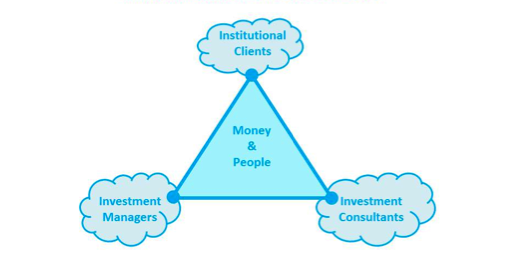A Fiduciary Standard May Leave Some Investors Out of Luck
Post on: 16 Март, 2015 No Comment

Financial professionals can adjust to the new reality in positive ways, but what about investors?
More On Legal & Compliance
from The Advisor’s Professional Library
- Regulatory Oversight of Investment Advisors Although the regulatory environment is in a state of flux, it is imperative that RIAs adhere to their compliance obligations. To ensure compliance, RIAs and IARs must fully understand what those obligations are. Client Commission Practices and Soft Dollars RIAs should always evaluate whether the products and services they receive from broker-dealers are appropriate. The SEC suggested that an RIA’s failure to stay within the scope of the Section 28(e) safe harbor may violate the advisor’s fiduciary duty to clients, so RIAs must evaluate their soft dollar relationships on a regular basis to ensure they are disclosed properly and that they do not negatively impact the best execution of clients’ transactions.
Advisors have decided, like it or not, that the fiduciary standard is coming. And they are getting ready, re-shaping their businesses to be prepared for the inevitable.
First, theyre focusing on larger fee-based relationships.
Second, theyre trimming the price tags on their services a major driver behind the rapid growth in advisor ETF use. (According to one study, close to 80% of advisors use or recommend ETFs, up from 40% in 2006.)
And, third, they are credentialing up with an alphabet soup of professional tags: CFP, CIMA, AIF, CPWA, CRPC, CRPC, CPWA and QPFC, among others.
The higher regulatory bar means that wirehouses and other advisors are offering fewer managers to clients. They want to prove that the pros know every offering on their platforms thoroughly.
The handwriting has been on the wall since the fiduciary conversation started. Recently, FINRA issued a letter which says advisors and firms must act in the best interests of clients.
While not a formal fiduciary standard, the path FINRA is heading down is clear.
What Lies Ahead
Fee-based business is a more natural fit for a fiduciary process than for a commission business. An advisor who is a fiduciary is required to have a well-documented process that drives an investment program, which is consistent with client objectives and in their best interests.
In-depth client knowledge and an extensive due diligence process are required for an advisor to devise an investment program that is compliant with the fiduciary standard.
Most advisors will understandably conclude that its not feasible to offer small accounts this level of service. For those advisors, the simpler suitability standard is more appropriate.
Suitability really means that an advisor must know his client’s needs and make investment recommendations that fit those needs.
Commission business is much more problematic under a fiduciary standard. For instance, does an advisor have to review the decision-making process behind each trade in accordance with a fiduciary standard?
Then theres the current dispute regarding the Department of Labor’s push for fiduciary standards for advisors servicing smaller 401(k) accounts. A White House Council of Economic Advisors Report charged that commission-based advisors offer their customers conflicted advice that costs middle income families $17 billion per year.
Translation: Many commission-based brokers are self-serving hucksters and rip-off artists from whom smaller investors need protection.
Investor Interests
While the DOL promises not to prohibit commission business, it’s clear that this is not its preferred business model. These regulators will likely tolerate it for the moment, though.
I guess the DOL regulators weren’t around after the 2008 crash, when many advisors both commission and fee-based prevented client from selling their positions at the bottom of the market.
Meanwhile, self-styled investor advocates campaign for a stricter fiduciary standard to apply even to advisors servicing smaller accounts.
The predictable result will be the disenfranchisement of smaller investors, as most advisors and their firms conclude that the modest fees garnered from servicing these clients do not justify the heightened potential liability.
These investors will likely find that robo-advisors are their only option. That’s not necessarily a bad thing, but robos are newcomers and don’t yet have a track record in different market environments.
Furthermore, robo-advisors like Betterment and Wealthfront don’t offer the option of a relationship with a human advisor.
Shouldn’t smaller investors have the option of choosing a trusted advisor? How will this work out during the next downturn? (I guess we’ll all find out.)
This reminds me of the Greek Stoics I learned about in college. They were purists, only interested in the realization of their abstract ideals of justice. They also were oblivious to the effects of their actions on real people, and their motto was Let justice triumph though the heavens may fall i.e. even if mankind is destroyed.
Consumer protection is an important goal; and where theres money, there are unscrupulous people. The fiduciary standard may bring a higher level of service to some investors, but it may also inadvertently leave many out in the cold.














